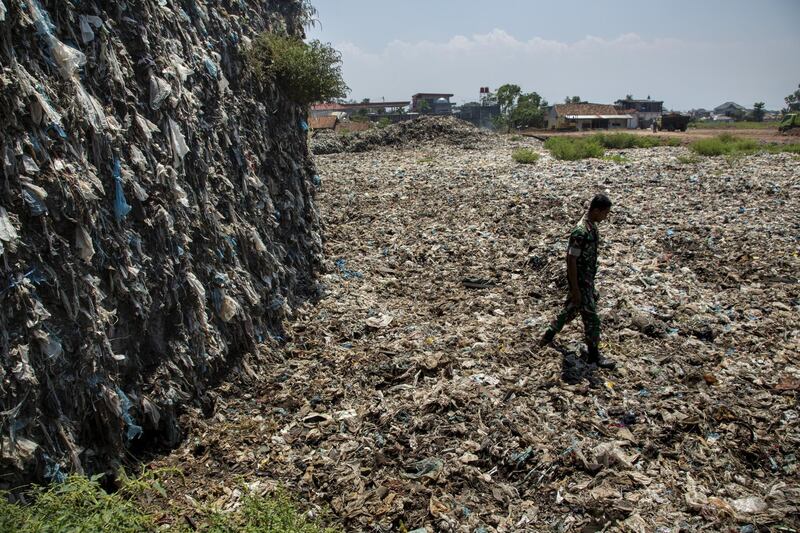It’s easy to preach about plastic. Photographs of Indonesia’s Citarum River, where fishermen can no longer see the water for the choking crust of detritus, rightly give pause for thought. Closer to home, the sight of barges loaded with tonnes of waste dredged from Dubai Creek demonstrates the environmental consequences of a throwaway society.
Plastic itself is not the enemy. This multifunctional by-product of the fossil-fuel era has improved our lives in innumerable ways, from how we package and transport food and medicines to the creation of life-saving surgical components.
Used correctly, plastic is actually a green friend, giving us lightweight, fuel-efficient cars and aircraft and the ability to create the vast wind turbine blades now generating clean electricity around the world. Some research even suggests that replacing plastic packaging with more traditional materials would boost greenhouse gas emissions by 270 per cent.
But the mistake we have made is seeing convenient items such as bags and takeaway containers as easily disposable – and the news that each UAE resident produces around 2.7kg of food and packaging waste every day should serve as a wake-up call.
It is no surprise that convenience has been prioritised in fast-moving cities such as Dubai and Abu Dhabi, where few have time to pause and consider the bigger picture. But consider it we must if our cities are to have a sustainable future.
The humble shopping bag – minutes in use, centuries in landfill – has become totemic in the battle against avoidable plastic waste. Some shops in the UAE are experimenting with deterrent charging – a cost of just Dh0.25 for each plastic bag has seen their use fall by 75 per cent in Abu Dhabi’s five Waitrose stores – and there are encouraging signs this practice will spread. Meanwhile, recycling bins are becoming more commonplace on the streets of the UAE.
Such initiatives are to be applauded, but they are only the beginning. Each of us must consider our own impact on the fragile ecosystem on which we all depend, and act accordingly.
In so many ways plastic is our friend. But we are our own worst enemies if we continue to use it irresponsibly.





